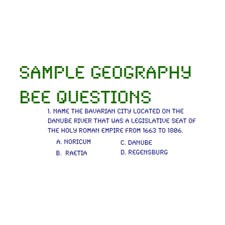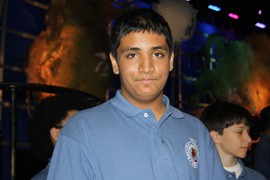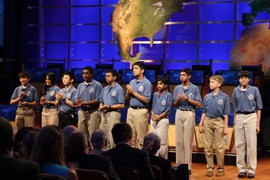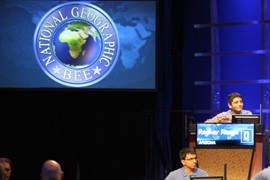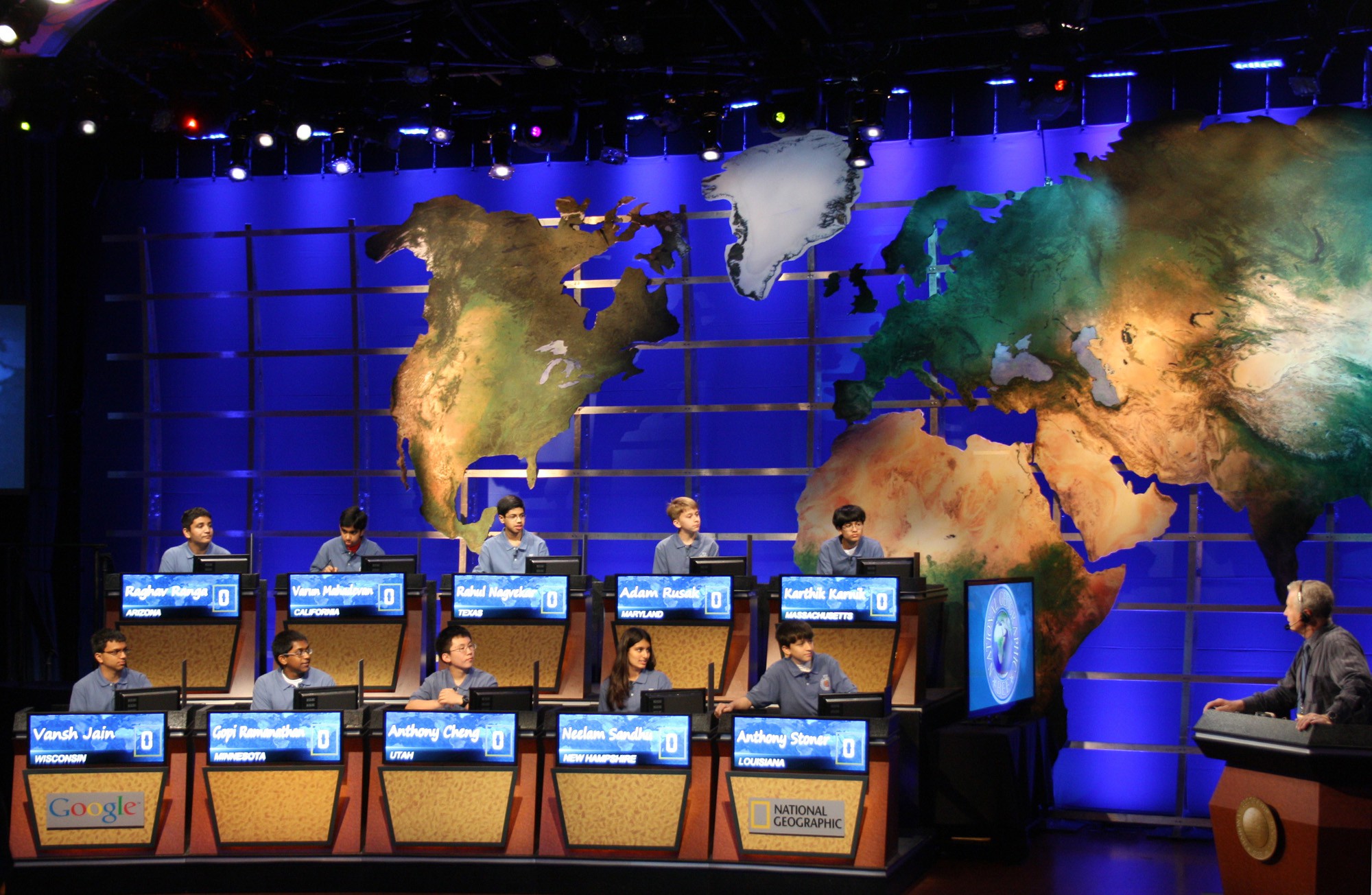Cronkite News has moved to a new home at cronkitenews.azpbs.org. Use this site to search archives from 2011 to May 2015. You can search the new site for current stories.
A world of knowledge: Tucson teen a National Geographic Bee finalist
WASHINGTON – Raghav Ranga was 6 when his parents clued in to the possibility that the Tucson boy might be destined for the National Geographic Bee: That’s when he started sleeping with a map.
That fascination with geography paid off Thursday when Raghav, now in eighth grade, finished fourth in the national finals of the bee, edging out 50 other state and territorial bee winners and taking home a $1,000 check.
Even though he didn’t win, Raghav said he is “completely happy” with his performance in the finals this week in Washington, the end of a national competition that began with 4 million fourth- through eighth-graders competing in their schools.
Raghav won his school and state bees to earn the trip to the nationals, where 54 finalists were winnowed down to 10 Thursday – and then to four.
“I was trying to go up in the point ladder – not just being the leader, but trying to survive,” Raghav said of the round before he was eliminated.
“I was ahead of the third place (contestant), then it was complete luck that made him go ahead, and he got third and I got fourth,” he said. “But I’m completely happy that I came in fourth.”
Raghav prepared for the bee by studying questionnaires by Kenneth Ma, and the CIA World Fact Book. He was also helped by the 2009 state champion from Arizona, Nicholas Farnsworth, who told Raghav that he needed to read the National Geographic magazines.
“He also told me not to study the U.S. at all, and I didn’t get one question on the U.S.,” Raghav said. “But I did anyway just to be safe.”
Preparation required not only studying, but disciplined time management as well, said Jo Ranga, Raghav’s mother. As parents, she and her husband provided Raghav with the materials he was interested in and helped him whenever he needed it. But he did the main work, she said.
“I’m very proud of Raghav,” she said. “He worked very hard, he used some good strategies and he stayed in the game as long as he could.”
During Tuesday’s preliminary round, Raghav was asked to name the capital of the West Flanders province in Belgium that is famous for spinning and weaving. He successfully answered Brugge.
“My mom used to live in Germany and they used to go to Brugge a lot, and she would get lace from there,” he said. “You have to know a lot of random facts if you want to be successful.”
Dee Glenn, Raghav’s eighth-grade grade history teacher at St. Gregory College Preparatory School who made the trip to Washington for the competition, said he fully expected him to get this far.
“Raghav is amazing! He is focused, on point, turns in things on time and asks insightful questions,” Glenn said. “I’ve only had him for a few months, but it’s not surprising he’s here.”
The national finals are held at the National Geographic headquarters in Washington and were sponsored by Google. This is the fourth consecutive year Google has sponsored the event, said Brian McClendon, vice president of engineering for Google Maps and Google Earth.
“One of the reasons is that many of the students actually studied on Google Earth and were asking questions, so when National Geographic came to us and talked about sponsoring it, it seemed like a perfect fit,” McClendon said.
“Google Earth is used for studying and practice, so we thought we would bring it in and make it part of the show,” he said.
The geography bee was created in 1989 to encourage and foster the study of geography in school curriculums, Mary Lee Elden, the bee’s executive director said. Finalists in the national competition are eligible to compete in a world championship later this year.
“We wanted to recognize these kids who are good in geography,” she said. “You saw them today, and they’re not going to get the trophies in football and soccer that some might, but they know about the world, and we wanted to reward those students who are so good in geography.
“I think we’re doing that, I think we are recognizing them as good role models,” Elden said.

